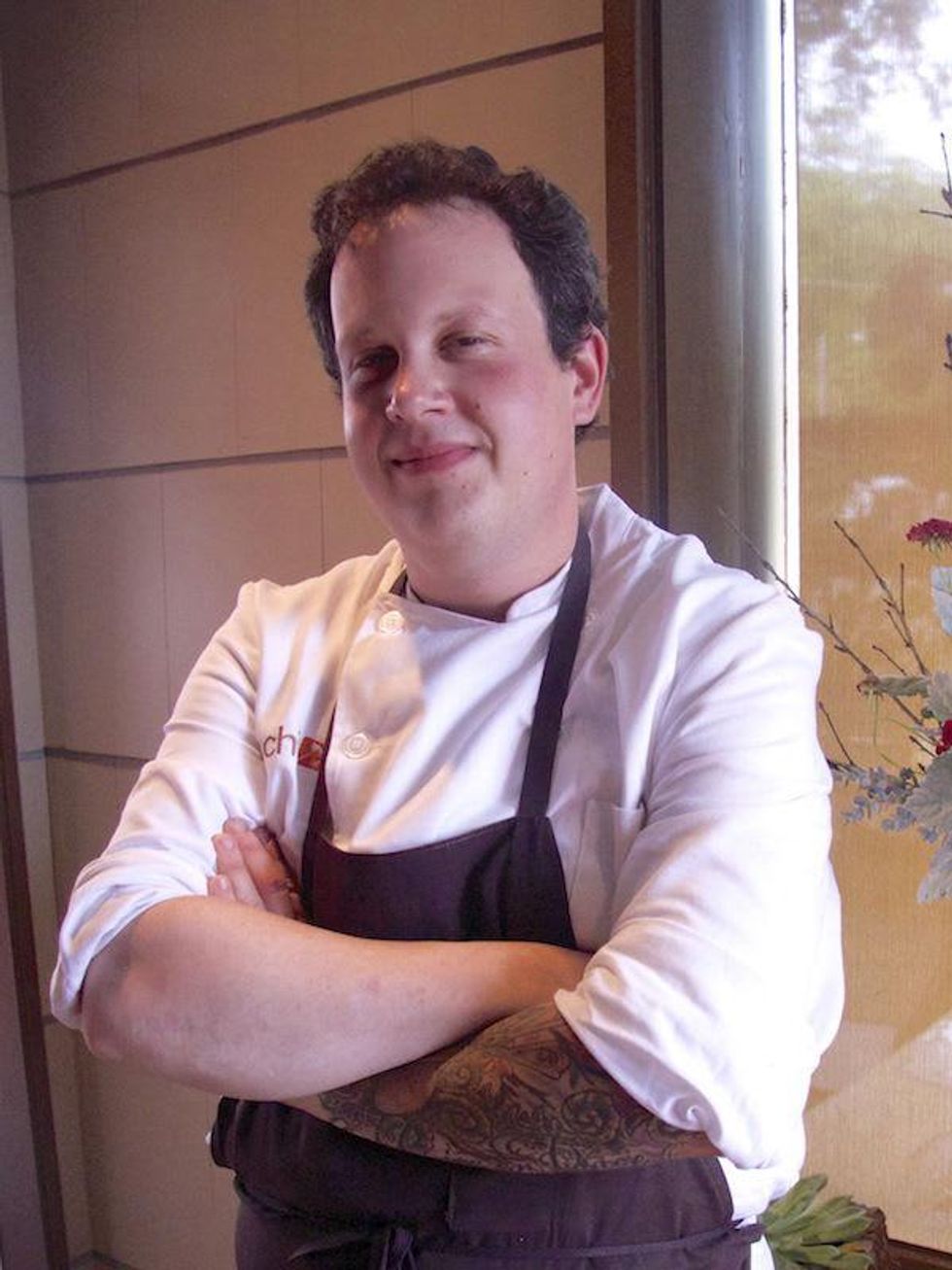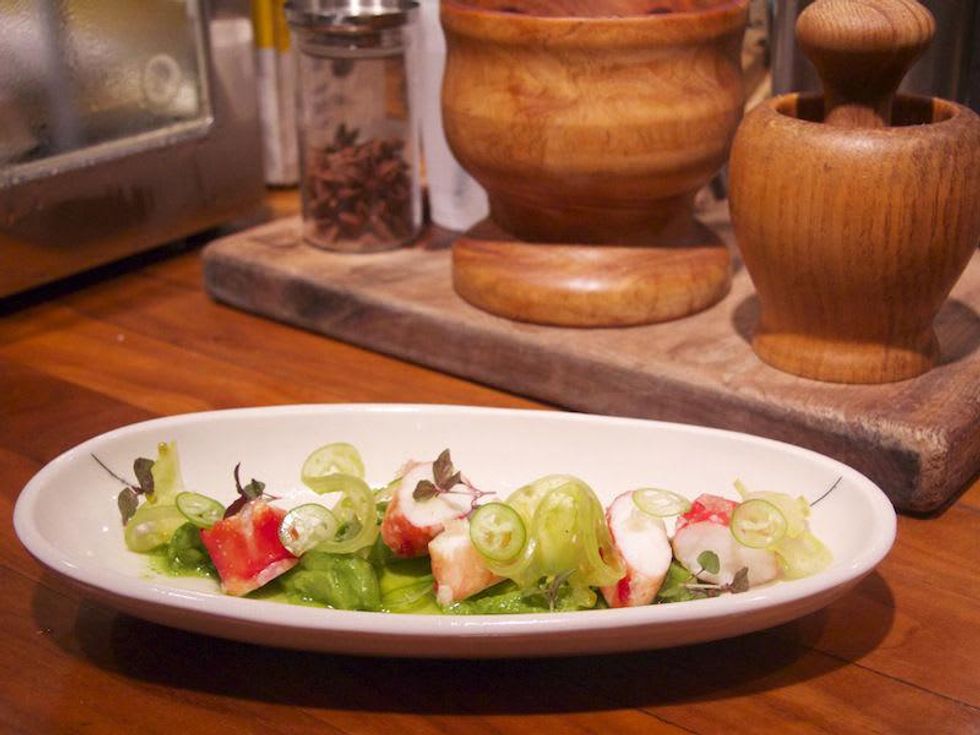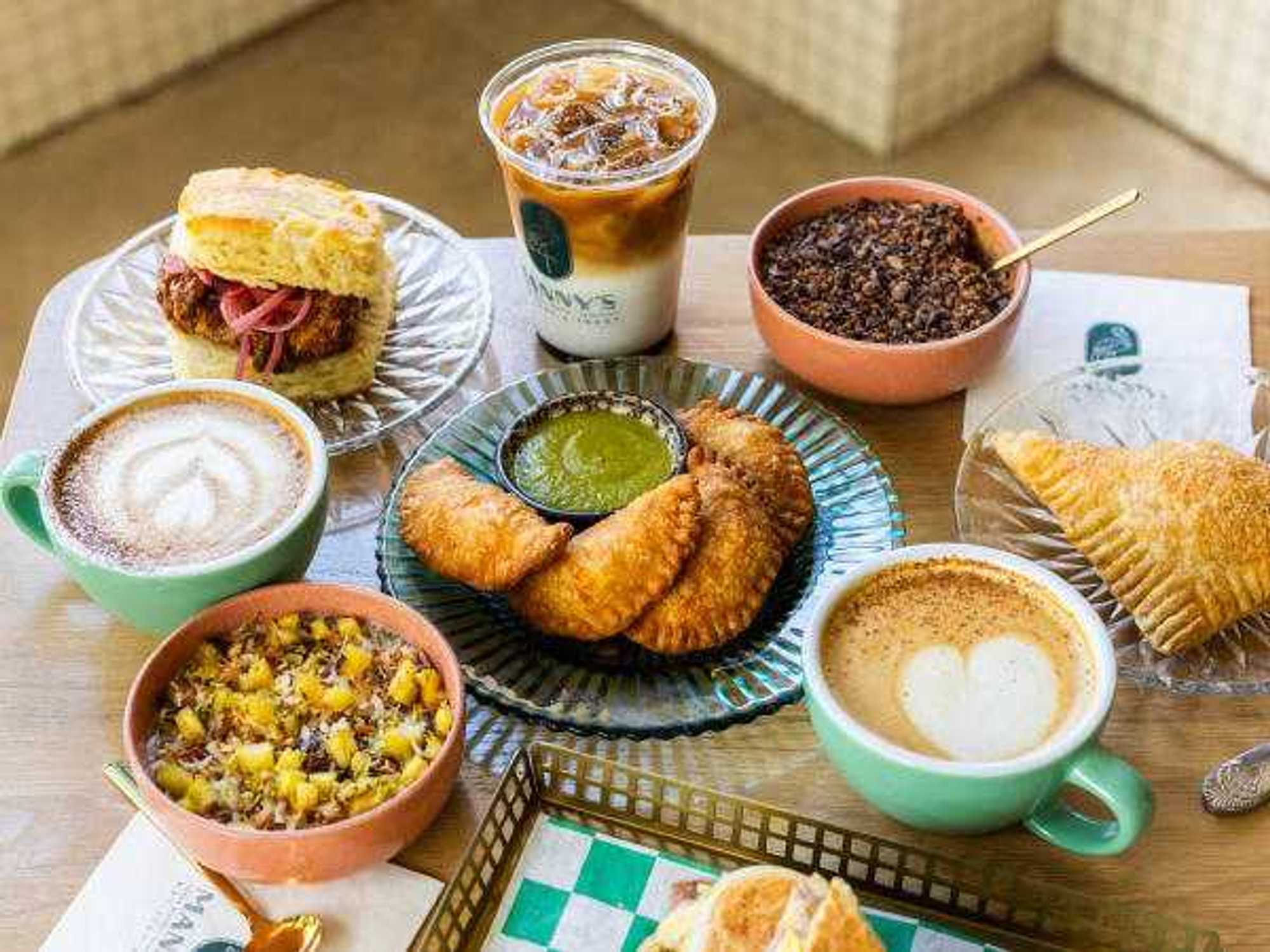Next in Line
Next in Line: Citywide 86'd champ Ben Schwartz talks kitchen miracles
Editor's note: As Austin continues to grow and thrive as a culinary epicenter, we’ve started to see certain big name chefs grow to demi-god celebrity status. But in kitchens, bars and restaurants across the city, there is so much more talent that often goes unspoken. Next in Line is a column celebrating back of the house heroes who might just be the next household name.
Name: Ben Schwartz
Kitchen: Uchi
Position: After winning Citywide 86'd, Schwartz moved from Uchiko to Uchi and was promoted to junior sous chef. He is about to spend a week in Chicago, staging at Grace and L2O.
Hometown: Natick, Massachusetts, a suburb of Boston.
When did you first start cooking? I first started cooking when I was in junior high. I thought I was gonna be a chef and then the music, drugs and rock ‘n’ roll bug bit me and I did that throughout high school and went to Berklee School of Music up in Boston. Then I dropped out and rediscovered my love for the kitchen when I was 19 [or] 20.
What was your first cooking job? My first kitchen job was a little basement kitchen called Stix, with an “X.” That was in Boston, over on Stanhope Street. I hope it’s not there anymore — I don’t think it is. Everything was on flavored skewers — that’s why it was called Stix! So you’d have beef skewers and foie gras skewers on rosemary sticks. Everything on sticks. That was my first gig. But he gave me a chance, I hadn’t worked in a kitchen before.
Are you self-taught or did you go to culinary school? A little bit of both. I was in school at that time and I probably had three kitchen jobs at different places the year that I was in school. I went to Cambridge Culinary, which was in Cambridge, Massachusetts. It was a two-day-a-week program, but I would say I learned much more from working in high-level kitchens and getting my butt kicked.
So that was right after Berklee School of Music? There was a year in between where I was waiting tables and watching the kitchen and getting yelled at for not watching my tables. I actually had a chef I was working for, while I was working front of house, telling me I would fail, that I would never be a cook, ever. And that was some of the best motivation I could ever have ... sometimes that’s all you need.
What other places have you cooked? After Stix I went to Sandrine’s, which was this sleepy little bistro in Harvard Square, with this Alsatian chef. From there I moved to Craigie on Main, for just a really brief stint, like 3 months. That’s a crazy place to work — he throws things. Then I worked at Tupelo, a little Cajun place and a total 180 from Craigie. It was just me and one other guy slinging old school Creole stuff.
From there, I went to Oleana, which is an amazing restaurant and a very dear place in my heart. It’s eastern Mediterranean, Moroccan, Turkish, owned by Ana Sortun, who’s an awesome inspiration to all people in the kitchen. I was there for a year and loved it. After my year was up, I went to Spain and staged at Restaurant Arzac for six months [three Michelin star kitchen, one of 40 unpaid stages]. Juan Mari Arzak is one of the originators of new Spanish cuisine. I ended up traveling around Europe a bit on my way out, then went back to Boston and opened up this restaurant called West Bridge in Cambridge on Kendall Square. I stayed there for a year, then moved down here.
What chefs were your biggest inspiration? Definitely Ana Sortuna and her chef de cuisine at the time, Cassie Piuma. She’s amazing — she really taught me what it means to be a working chef. She was so hands on — she would never ask [you] to do anything she wouldn’t do herself. Just so hardcore, so kind with all of us. After a 300-cover service, she would ask every one of us what we wanted for dinner and make us something on the line. Just an incredible person.
How would you describe your style of cuisine? I don’t really have a regional style at the moment. I would say that I like to showcase stuff that’s in season or, even if I don’t think it’s in season, ingredients that I think are beautiful. And I try not to mess with them too much. There’s a big trend nowadays with contorting food too much, taking things and manipulating them so far. Yes, the technique is amazing, but you’re almost disrespecting the original stuff.
What do you love about cooking? Working with your hands. Fabricating something everyday is so valuable. Especially for somebody like me, who could get into trouble really quick. It keeps your head clean, I find. And just the miracle we pull off every night — [there is] so little room for error and so many people pulling together to pull off what we do every night. Especially at a restaurant like Uchiko, where you’re putting out really fine cuisine in high numbers. It’s easy to do fine cuisine in 20 covers, it’s easy to do slop in 500 covers. But to do 450 covers of nice stuff is just awesome. And you get to make people happy! I know everybody says that, but people come here and get engaged, have celebrations. What’s better than that? You’re part of the happiest times in people’s lives.
Can you talk a little bit about what it was like to win Citywide 86'd? First of all, it’s just such a cool thing that Austin does that. It reinforces the family aspect of the restaurant scene here, which is really cool. I’m proud that Uchi and Uchiko are the founders. It was wild. I’ve never cooked like that before. It goes against everything you’re taught, essentially, because you’re supposed to think everything through and be clean and focused and all that. The closest I can compare it to is improvising on six instruments at once. Whatever comes to your head first better work or you better make it work because you have no time to think about anything else or do anything else. I got kind of addicted to it by the end. It was fun! You just pull out all your memory and see what you can do.
What’s your favorite music to listen to in the kitchen? At home, Muscle Shoals soul. Late '60s soul, because I can just chill. But here, it depends. If you’re trying to hammer through stuff like cleaning, you put on some metal or something to get you going. But mostly the pastry girls pick the music in the morning, so it’s whatever they’ve got going.
What do you like to do when you’re not working? When is that? I tend to decompress. I spend a lot of time home with my dog, listening to records. I have this house down in South Austin, which is a new concept for me. Coming from Boston, living there you have an apartment the size of a stable and there’s no green anywhere, so it’s really cool to go into my backyard and hang out with the dog and chill and try to take that in. But obviously the bar scene here is crazy, so I do that too and go see some music whenever I can.
Favorite food to eat when not working? I do very little cooking at home, unfortunately. But ethnic Asian food — Thai, Chinese food up north — that’s what I always crave. When I get out of work, the light, Vietnamese sort of stuff is what I want. I’m always looking for random taco shacks and trailers on the street, which is a new concept to me too. The one with no sign is always the best.


